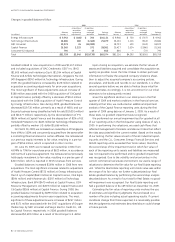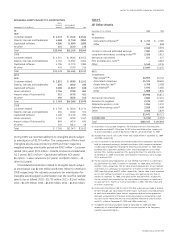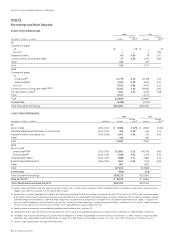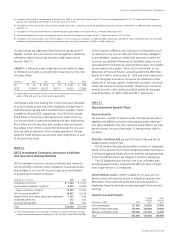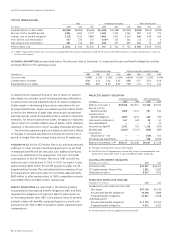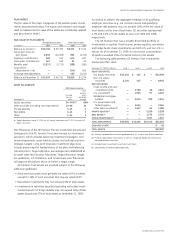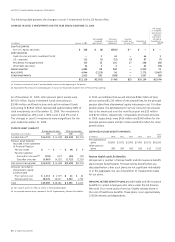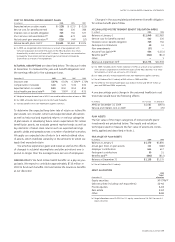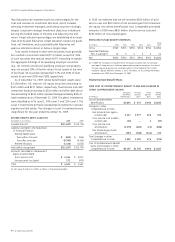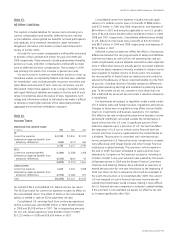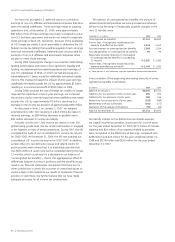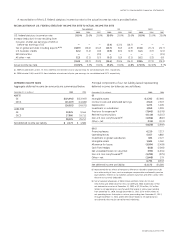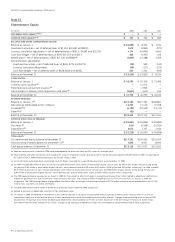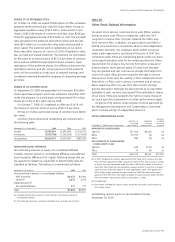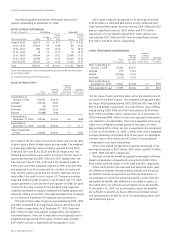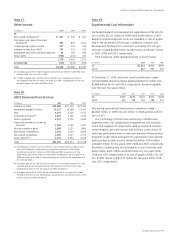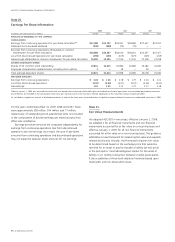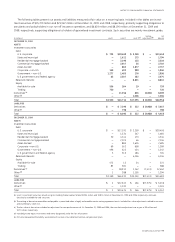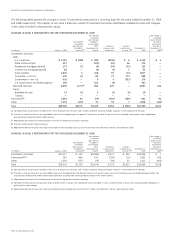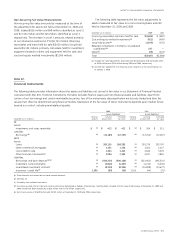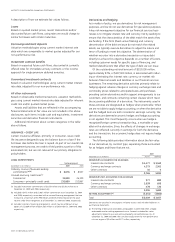GE 2009 Annual Report Download - page 94
Download and view the complete annual report
Please find page 94 of the 2009 GE annual report below. You can navigate through the pages in the report by either clicking on the pages listed below, or by using the keyword search tool below to find specific information within the annual report.
92 GE 2009 ANNUAL REPORT
We have not provided U.S. deferred taxes on cumulative
earnings of non-U.S. affiliates and associated companies that have
been reinvested indefinitely. These earnings relate to ongoing
operations and, at December 31, 2009, were approximately
$84 billion. Most of these earnings have been reinvested in active
non-U.S. business operations and we do not intend to repatriate
these earnings to fund U.S. operations. Because of the availability
of U.S. foreign tax credits, it is not practicable to determine the U.S.
federal income tax liability that would be payable if such earnings
were not reinvested indefinitely. Deferred taxes are provided for
earnings of non-U.S. affiliates and associated companies when
we plan to remit those earnings.
During 2009, following the change in our external credit ratings,
funding actions taken and review of our operations, liquidity and
funding, we determined that undistributed prior-year earnings of
non-U.S. subsidiaries of GECS, on which we had previously pro-
vided deferred U.S. taxes, would be indefinitely reinvested outside
the U.S. This change increased the amount of prior-year earnings
indefinitely reinvested outside the U.S. by approximately $2 billion,
resulting in an income tax benefit of $700 million in 2009.
During 2008, because the use of foreign tax credits no longer
required the repatriation of prior-year earnings, we increased
the amount of prior-year earnings that were indefinitely reinvested
outside the U.S. by approximately $1 billion, resulting in a
decrease to the income tax provision of approximately $350 million.
As discussed in Note 1, on January 1, 2007, we adopted
amendments to ASC 740, resulting in a $49 million decrease in
retained earnings, an $89 million decrease in goodwill and a
$40 million decrease in income tax liability.
Annually, we file over 7,000 income tax returns in over 250
global taxing jurisdictions. We are under examination or engaged
in tax litigation in many of these jurisdictions. During 2007, the IRS
completed the audit of our consolidated U.S. income tax returns
for 2000–2002. At December 31, 2009, the IRS was auditing our
consolidated U.S. income tax returns for 2003–2007. In addition,
certain other U.S. tax deficiency issues and refund claims for
previous years were unresolved. It is reasonably possible that
the 2003–2005 U.S. audit cycle will be completed during the next
12 months, which could result in a decrease in our balance of
“unrecognized tax benefits” — that is, the aggregate tax effect of
differences between tax return positions and the benefits recog-
nized in our financial statements. We believe that there are no
other jurisdictions in which the outcome of unresolved issues or
claims is likely to be material to our results of operations, financial
position or cash flows. We further believe that we have made
adequate provision for all income tax uncertainties.
The balance of unrecognized tax benefits, the amount of
related interest and penalties we have provided and what we
believe to be the range of reasonably possible changes in the
next 12 months, were:
December 31 (In millions) 2009 2008
Unrecognized tax benefits $7,251 $6,692
Portion that, if recognized, would reduce tax
expense and effective tax rate (a) 4,918 4,453
Accrued interest on unrecognized tax benefits 1,369 1,204
Accrued penalties on unrecognized tax benefits 99 96
Reasonably possible reduction to the balance
of unrecognized tax benefits in succeeding
12 months 0–1,800 0–1,500
Portion that, if recognized, would reduce tax
expense and effective tax rate (a) 0–1,400 0–1,100
(a) Some portion of such reduction might be reported as discontinued operations.
A reconciliation of the beginning and ending amounts of unrec-
ognized tax benefits is as follows:
(In millions) 2009 2008
Balance at January 1 $6,692 $6,331
Additions for tax positions of the current year 695 553
Additions for tax positions of prior years 289 516
Reductions for tax positions of prior years (229) (489)
Settlements with tax authorities (146) (173)
Expiration of the statute of limitations (50) (46)
Balance at December 31 $7,251 $6,692
We classify interest on tax deficiencies as interest expense;
we classify income tax penalties as provision for income taxes.
For the year ended December 31, 2009, $172 million of interest
expense and $14 million of tax expense related to penalties
were recognized in the Statement of Earnings, compared with
$268 million and $19 million for the year ended December 31,
2008 and $(279) million and $(34) million for the year ended
December 31, 2007.


